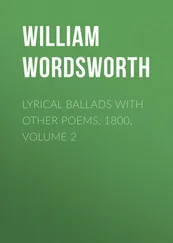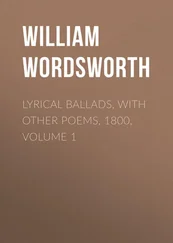Samuel Coleridge - Lyrical Ballads, With a Few Other Poems (1798)
Здесь есть возможность читать онлайн «Samuel Coleridge - Lyrical Ballads, With a Few Other Poems (1798)» весь текст электронной книги совершенно бесплатно (целиком полную версию без сокращений). В некоторых случаях можно слушать аудио, скачать через торрент в формате fb2 и присутствует краткое содержание. Год выпуска: 2005, Жанр: Поэзия, на английском языке. Описание произведения, (предисловие) а так же отзывы посетителей доступны на портале библиотеки ЛибКат.
- Название:Lyrical Ballads, With a Few Other Poems (1798)
- Автор:
- Жанр:
- Год:2005
- ISBN:нет данных
- Рейтинг книги:5 / 5. Голосов: 1
-
Избранное:Добавить в избранное
- Отзывы:
-
Ваша оценка:
- 100
- 1
- 2
- 3
- 4
- 5
Lyrical Ballads, With a Few Other Poems (1798): краткое содержание, описание и аннотация
Предлагаем к чтению аннотацию, описание, краткое содержание или предисловие (зависит от того, что написал сам автор книги «Lyrical Ballads, With a Few Other Poems (1798)»). Если вы не нашли необходимую информацию о книге — напишите в комментариях, мы постараемся отыскать её.
Lyrical Ballads, With a Few Other Poems (1798) — читать онлайн бесплатно полную книгу (весь текст) целиком
Ниже представлен текст книги, разбитый по страницам. Система сохранения места последней прочитанной страницы, позволяет с удобством читать онлайн бесплатно книгу «Lyrical Ballads, With a Few Other Poems (1798)», без необходимости каждый раз заново искать на чём Вы остановились. Поставьте закладку, и сможете в любой момент перейти на страницу, на которой закончили чтение.
Интервал:
Закладка:
Sir! 'twas a precious flock to me,
As dear as my own children be;
For daily with my growing store
I loved my children more and more.
Alas! it was an evil time;
God cursed me in my sore distress,
I prayed, yet every day I thought
I loved my children less;
And every week, and every day,
My flock, it seemed to melt away.
They dwindled, Sir, sad sight to see!
From ten to five, from five to three,
A lamb, a weather, and a ewe;
And then at last, from three to two;
And of my fifty, yesterday
I had but only one,
And here it lies upon my arm,
Alas! and I have none;
To-day I fetched it from the rock;
It is the last of all my flock."
THE DUNGEON.
And this place our forefathers made for man!
This is the process of our love and wisdom,
To each poor brother who offends against us—
Most innocent, perhaps—and what if guilty?
Is this the only cure? Merciful God?
Each pore and natural outlet shrivell'd up
By ignorance and parching poverty,
His energies roll back upon his heart,
And stagnate and corrupt; till changed to poison,
They break out on him, like a loathsome plague-spot;
Then we call in our pamper'd mountebanks—
And this is their best cure! uncomforted
And friendless solitude, groaning and tears,
And savage faces, at the clanking hour,
Seen through the steams and vapour of his dungeon,
By the lamp's dismal twilight! So he lies
Circled with evil, till his very soul
Unmoulds its essence, hopelessly deformed
By sights of ever more deformity!
With other ministrations thou, O nature!
Healest thy wandering and distempered child:
Thou pourest on him thy soft influences,
Thy sunny hues, fair forms, and breathing sweets,
Thy melodies of woods, and winds, and waters,
Till he relent, and can no more endure
To be a jarring and a dissonant thing,
Amid this general dance and minstrelsy;
But, bursting into tears, wins back his way,
His angry spirit healed and harmonized
By the benignant touch of love and beauty.
THE MAD MOTHER.
Her eyes are wild, her head is bare,
The sun has burnt her coal-black hair,
Her eye-brows have a rusty stain,
And she came far from over the main.
She has a baby on her arm,
Or else she were alone;
And underneath the hay-stack warm,
And on the green-wood stone,
She talked and sung the woods among;
And it was in the English tongue.
"Sweet babe! they say that I am mad,
But nay, my heart is far too glad;
And I am happy when I sing
Full many a sad and doleful thing:
Then, lovely baby, do not fear!
I pray thee have no fear of me,
But, safe as in a cradle, here
My lovely baby! thou shalt be,
To thee I know too much I owe;
I cannot work thee any woe.
A fire was once within my brain;
And in my head a dull, dull pain;
And fiendish faces one, two, three,
Hung at my breasts, and pulled at me.
But then there came a sight of joy;
It came at once to do me good;
I waked, and saw my little boy,
My little boy of flesh and blood;
Oh joy for me that sight to see!
For he was here, and only he.
Suck, little babe, oh suck again!
It cools my blood; it cools my brain;
Thy lips I feel them, baby! they
Draw from my heart the pain away.
Oh! press me with thy little hand;
It loosens something at my chest;
About that tight and deadly band
I feel thy little fingers press'd.
The breeze I see is in the tree;
It comes to cool my babe and me.
Oh! love me, love me, little boy!
Thou art thy mother's only joy;
And do not dread the waves below,
When o'er the sea-rock's edge we go;
The high crag cannot work me harm,
Nor leaping torrents when they howl;
The babe I carry on my arm,
He saves for me my precious soul;
Then happy lie, for blest am I;
Without me my sweet babe would die.
Then do not fear, my boy! for thee
Bold as a lion I will be;
And I will always be thy guide,
Through hollow snows and rivers wide.
I'll build an Indian bower; I know
The leaves that make the softest bed:
And if from me thou wilt not go,
But still be true 'till I am dead,
My pretty thing! then thou shalt sing,
As merry as the birds in spring.
Thy father cares not for my breast,
'Tis thine, sweet baby, there to rest:
'Tis all thine own! and if its hue
Be changed, that was so fair to view,
'Tis fair enough for thee, my dove!
My beauty, little child, is flown;
But thou wilt live with me in love,
And what if my poor cheek be brown?
'Tis well for me; thou canst not see
How pale and wan it else would be.
Dread not their taunts, my little life!
I am thy father's wedded wife;
And underneath the spreading tree
We two will live in honesty.
If his sweet boy he could forsake,
With me he never would have stay'd:
From him no harm my babe can take,
But he, poor man! is wretched made,
And every day we two will pray
For him that's gone and far away.
I'll teach my boy the sweetest things;
I'll teach him how the owlet sings.
My little babe! thy lips are still,
And thou hast almost suck'd thy fill.
—Where art thou gone my own dear child?
What wicked looks are those I see?
Alas! alas! that look so wild,
It never, never came from me:
If thou art mad, my pretty lad,
Then I must be for ever sad.
Oh! smile on me, my little lamb!
For I thy own dear mother am.
My love for thee has well been tried:
I've sought thy father far and wide.
I know the poisons of the shade,
I know the earth-nuts fit for food;
Then, pretty dear, be not afraid;
We'll find thy father in the wood.
Now laugh and be gay, to the woods away!
And there, my babe; we'll live for aye.
THE IDIOT BOY.
Tis eight o'clock,—a clear March night,
The moon is up—the sky is blue,
The owlet in the moonlight air,
He shouts from nobody knows where;
He lengthens out his lonely shout,
Halloo! halloo! a long halloo!
—Why bustle thus about your door,
What means this bustle, Betty Foy?
Why are you in this mighty fret?
And why on horseback have you set
Him whom you love, your idiot boy?
Beneath the moon that shines so bright,
Till she is tired, let Betty Foy
With girt and stirrup fiddle-faddle;
But wherefore set upon a saddle
Him whom she loves, her idiot boy?
There's scarce a soul that's out of bed;
Good Betty! put him down again;
His lips with joy they burr at you,
But, Betty! what has he to do
With stirrup, saddle, or with rein?
The world will say 'tis very idle,
Bethink you of the time of night;
There's not a mother, no not one,
But when she hears what you have done,
Oh! Betty she'll be in a fright.
But Betty's bent on her intent,
For her good neighbour, Susan Gale,
Old Susan, she who dwells alone,
Is sick, and makes a piteous moan,
As if her very life would fail.
There's not a house within a mile.
No hand to help them in distress:
Old Susan lies a bed in pain,
And sorely puzzled are the twain,
For what she ails they cannot guess.
Интервал:
Закладка:
Похожие книги на «Lyrical Ballads, With a Few Other Poems (1798)»
Представляем Вашему вниманию похожие книги на «Lyrical Ballads, With a Few Other Poems (1798)» списком для выбора. Мы отобрали схожую по названию и смыслу литературу в надежде предоставить читателям больше вариантов отыскать новые, интересные, ещё непрочитанные произведения.
Обсуждение, отзывы о книге «Lyrical Ballads, With a Few Other Poems (1798)» и просто собственные мнения читателей. Оставьте ваши комментарии, напишите, что Вы думаете о произведении, его смысле или главных героях. Укажите что конкретно понравилось, а что нет, и почему Вы так считаете.












